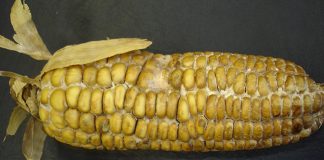
Heinrich Krüger, NWK chairman, ascribed the profit to the loyal support of staff and shareholders. He said that the support of financiers such as commercial banks during the year’s taxing farming conditions had also helped.
The board approved a year-end dividend of 3c/share for distribution to shareholders. In terms of existing tax legislation, dividends were subject to a 20% retention tax, and therefore represented an after-tax payout of 2,4c/share.
According to an NWK statement, the company had in the previous year taken delivery of the smallest volume of grain since 1992. Only 300 000t maize and 139 000t sunflower were received, compared with 559 000t maize and 87 000t sunflower in 2015/2016.
Kruger said that NWK’s profitability was not at the level where the board and management wanted it to be, but he was convinced it had reached a turning point after the drought.
The results had been achieved amidst exceptional write-offs on investments, including an additional R11-million write-off on the assets of NWK’s African businesses, as well as a R20-million write-off on the goodwill related to the investments in Zambia and Botswana, NWK said.
A positive cash flow of R516 million had been negatively affected by the increase in loans and debtors’ finance due to the extended drought and the low maize prices of 2017.
In spite of the low grain deliveries, the grain department achieved a positive result of R81 million, retail contributed R66 million to pre-tax profits, and the treasury and finance department made a profit of R61 million. NWK’s insurance business contributed a further R4 million to the group’s profit.
Krüger warned that the drought, poor maize prices and large production debt would continue to put producers under financial pressure, resulting in considerable cash flow problems.
He said that it would become increasingly difficult for producers to obtain production funding within the current legislative framework in South Africa.











